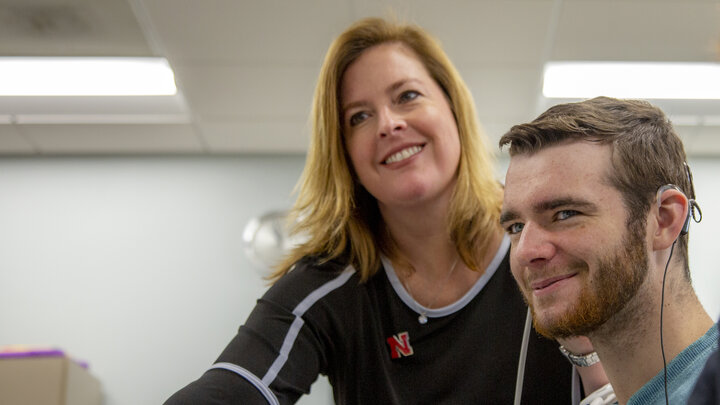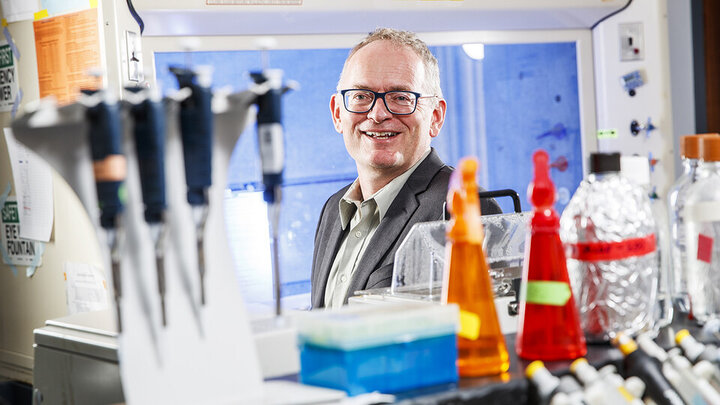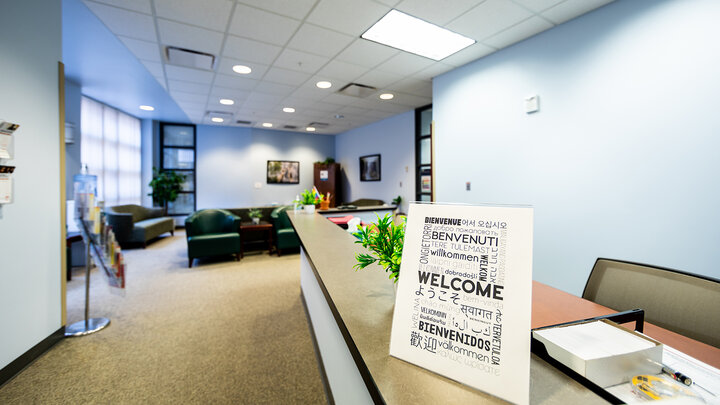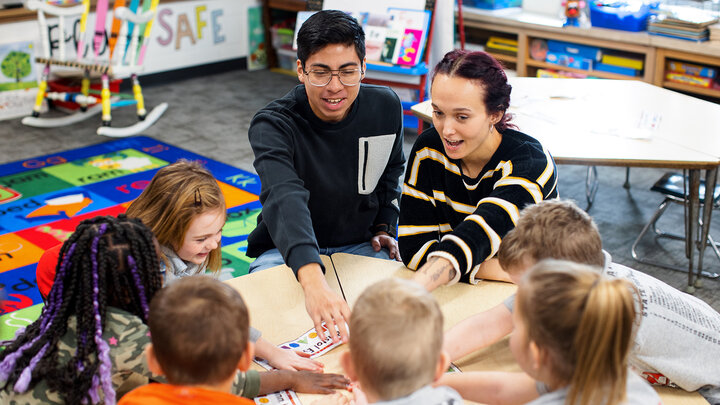Over the last two and a half decades, Michelle Hughes has dedicated her primary line of research to improving outcomes for people with cochlear implants. Now, with a new Grand Challenges planning grant, she’s expanding her research efforts to try to determine the biggest barriers and potential solutions to improving overall health in underserved populations.
Hughes, a professor in Special Education and Communication Disorders , was one of eight faculty at the University of Nebraska-Lincoln selected to receive a Grand Challenges planning grant worth nearly $150,000. Her two-year project, “Improving Healthcare Access for Underserved Populations,” also involves faculty from Biological Systems Engineering, Rural Prosperity Nebraska, Biochemistry, Extension, Mechanical and Materials Engineering, Center for Brain, Biology and Behavior, Software Engineering, and Advertising and Public Relations.
“My lab is currently working on a project investigating the potential impacts of substance misuse on the hearing and balance systems, and the population we are working with has really gotten me interested in health disparities research,” Hughes said.
According to the grant proposal, poor access to healthcare can have considerable negative impacts across the lifespan. These impacts are particularly disproportionate among underserved populations such as minority populations, people in rural areas, elderly populations, and people experiencing poverty.
The goals of the planning grant project are to design an infrastructure to recruit and train individuals from underserved populations to provide health literacy, healthcare, and technical solutions to target health disparities within their own communities; and leverage that infrastructure to identify potential innovative, widely available technological solutions to mitigate significant health problems.
“This two-pronged approach will allow for empowerment within communities, as well as progress toward direct healthcare access and service delivery,” Hughes said.
Hughes and her co-investigators plan to host two symposia featuring presentations by experts to better understand the problems underlying health disparities and underserved populations. A third symposium will feature community partners focusing on community empowerment, nuances associated with approaching and engaging unique populations, and drawing adolescents and teens into health and STEM fields.
This grant work will focus on health inequities in Nebraska, but the team hopes the project’s outcomes will have global applications. The larger goal is to use this project to develop a proposal for a catalyst grant. In the meantime, Hughes is looking forward to collaborating with so many experts from across the university to make an impact.
“I was excited to be selected for a Grand Challenges planning grant,” Hughes said. “There are so many talented people at this university, so getting to leverage people’s strengths to come together to learn more about a problem from different angles and perspectives is really exciting.”
College of Education and Human Sciences
Special Education and Communication Disorders




